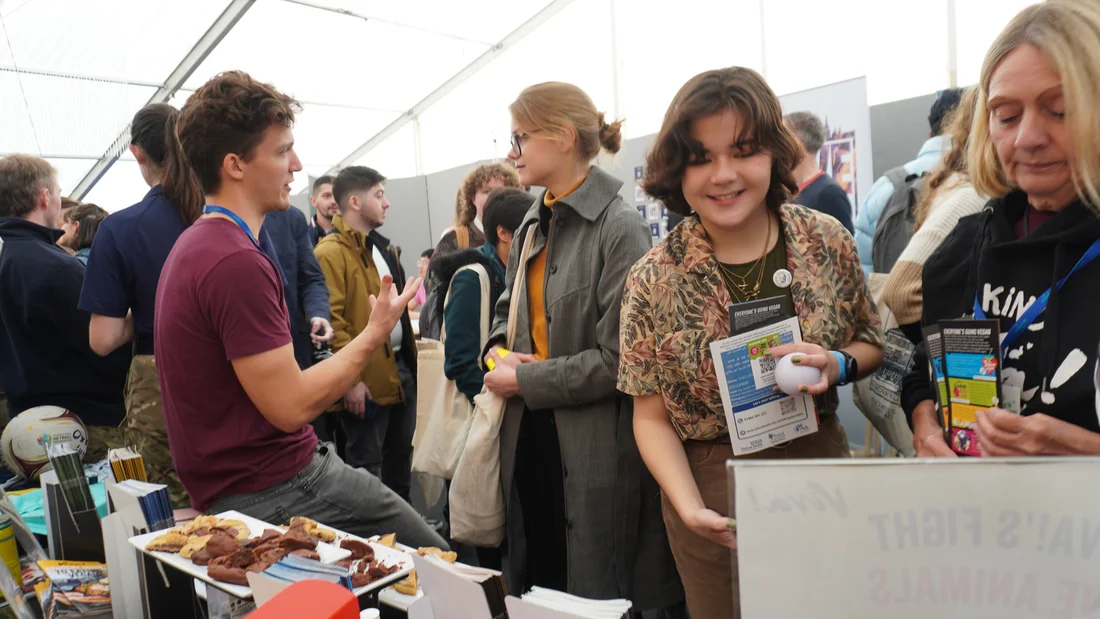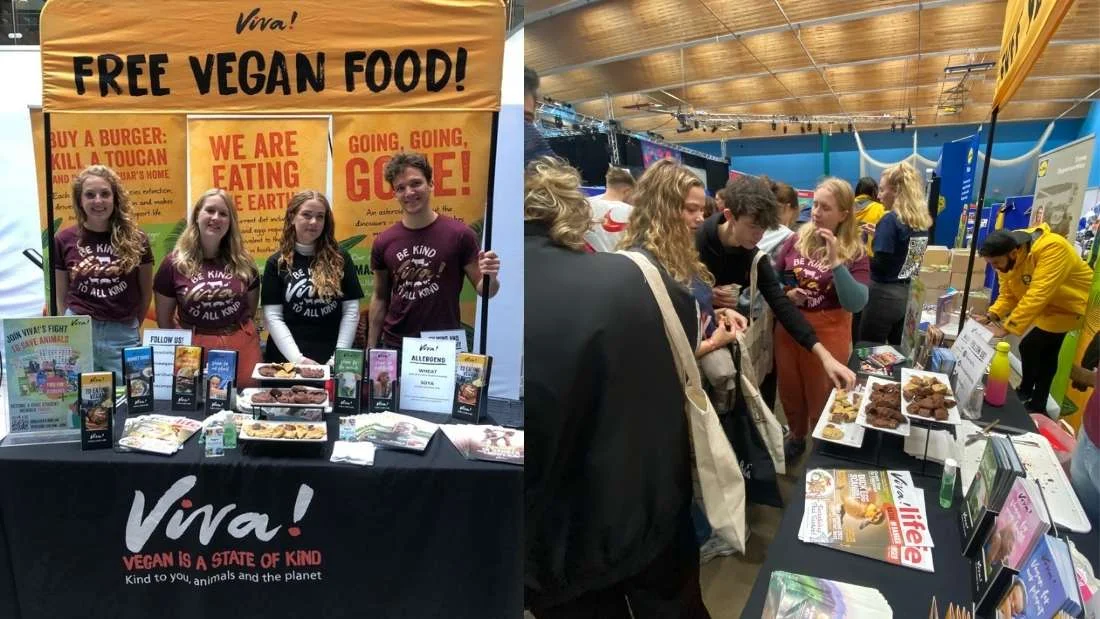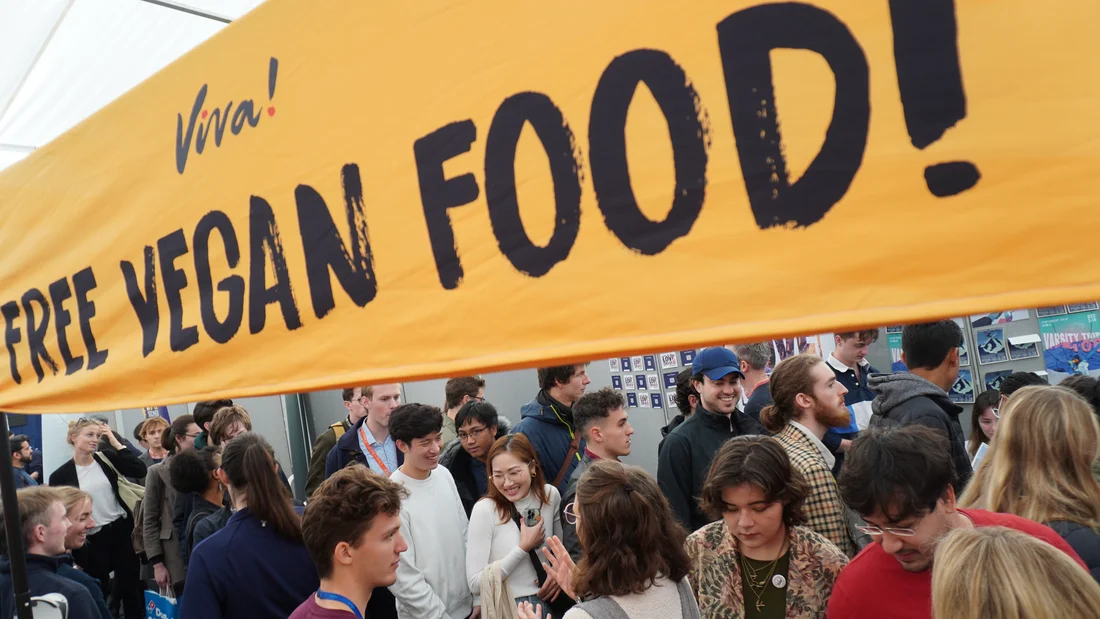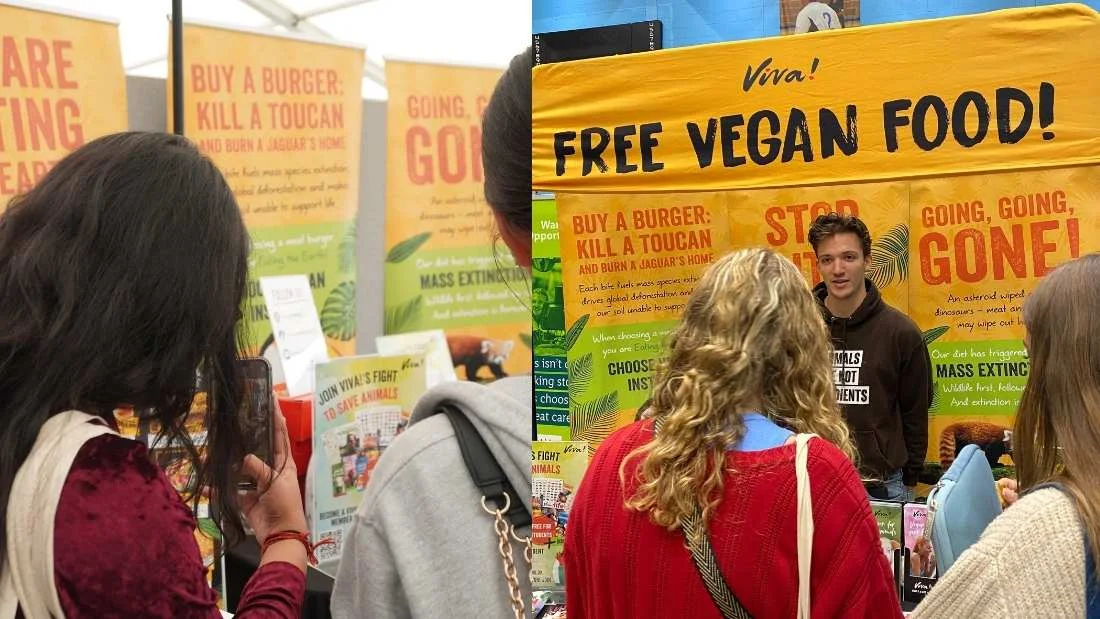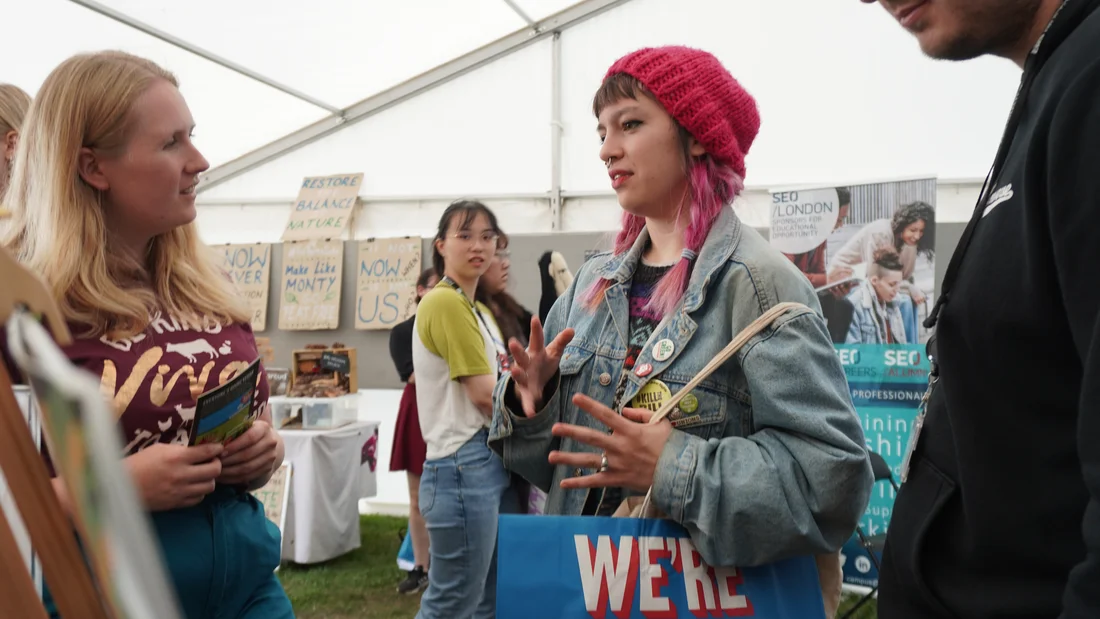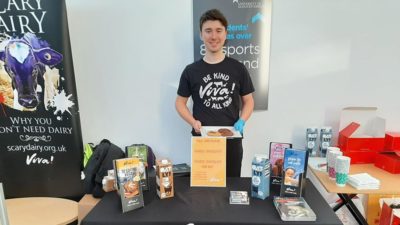Thousands of students reached on Viva!’s latest University Freshers’ Tour
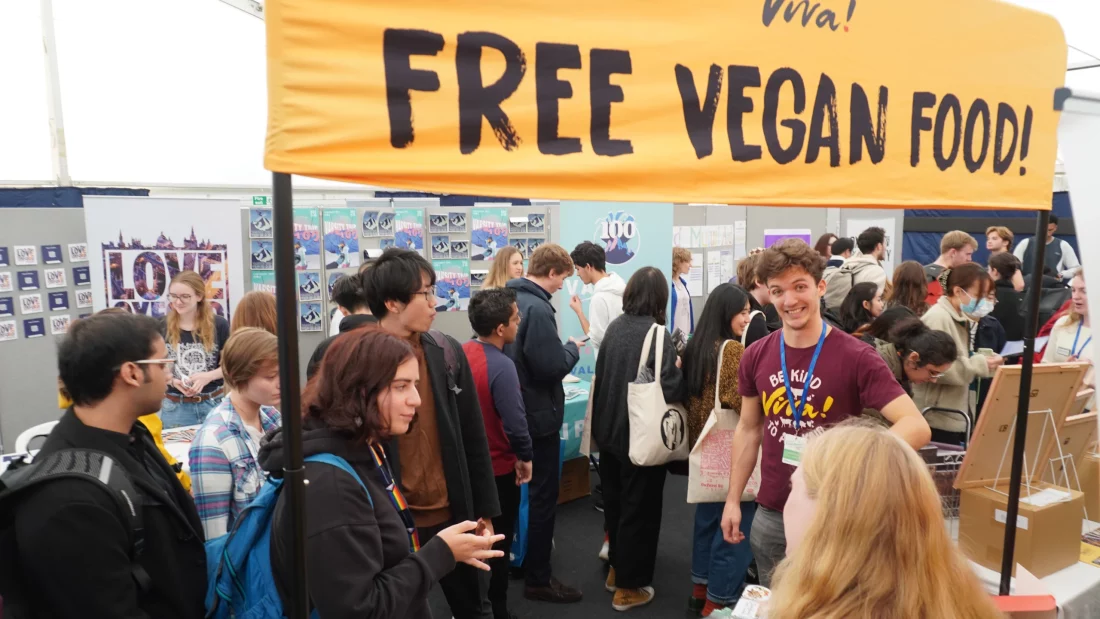
Back to school!
The dust has settled and Viva!’s Freshers’ Tour is over for another year. So, what did we learn?
For one thing, the UK is more vegan than it’s ever been and that is only getting better. As of 2019, 55 per cent of students said they would like to see more plant-based options in their cafeterias. The number of people choosing vegan foods, whether in cafeterias, supermarkets or restaurants, has also skyrocketed, leading to an explosion in the number of plant-based options in recent years. And this shows no signs of slowing.
At the universities of Reading, Bristol, Cardiff, Bath and Oxford this year, we saw with our own eyes, the extent to which these national statistics ring true on the ground. Hordes of students – over 7,000 in total! – descended on our stalls to pick us clean of cookies and the Student Guide to Eating Vegan – the most popular leaflet this year, filled with inexpensive, easy, student-friendly meal ideas – as well as picking up resources on Eating the Earth, the Vegan Recipe Club app and Vegan for our World.
However, we also learnt how far there still is to go. For every student who was either vegan or pro-vegan (oftentimes vegetarian already and considering ‘taking the plunge’ to a more ethical and sustainable way of life), there was usually another who admitted they had just never really thought about veganism before.
And that’s where we come in. As campaigners and educators from the UK’s leading vegan charity, we love nothing more than engaging with people for the first time about veganism – learning what they already know, what they perceive the roadblocks or obstacles to be, listening to their objections and walking them in the right direction towards the plant-based future we all so dearly need.
What did university students learn from us?
Eating The Earth, Viva!’s latest campaign, is all about wildlife. Eating meat, fish, dairy and eggs is the leading cause of wildlife loss around the world. Even for people who are conditioned not to consider the toils and suffering of the farmed chicken, pig or cow, the extinction of the tiger, toucan or red panda represents a significant and worrying loss. This is perhaps what underlies the success of Viva!’s wildlife campaign.
On learning these facts, many students were shocked, even mortified. “I had no idea!”, I remember one flexitarian ecology student telling me. Another student reckoned that ‘regenerative’ meat and dairy farming could be the way forward – but changed their mind later in our conversation when I pointed out that the land use required for this sort of low-yield, extensive grazing would require many dozens of Earths, with an untold cost to biodiversity.
Conversation didn’t revolve around wildlife in all cases, of course – many students came up to us with unanswered questions – on a whole variety of vegan-related issues.
“Isn’t it better to eat locally-sourced meat than vegan food from abroad?” was a question on many students’ minds – even though the data shows the exact opposite of this to be true. While emissions from food miles are no doubt important, of far more significance is the type of food that we eat – with plant-based being consistently better on all fronts than animal-based. It’s what you eat that matters most, rather than where it’s from.
Other students wanted to know: “Surely it is ethical to humanely kill free range, grass-fed animals?” Many of these students rapidly became less sure of this assertion when they learned about how farmed animals are actually raised and slaughtered in the UK and around the world. Many realised that there was no way that taking the life of another could ever be described as ‘humane’ or ‘kind’.
Yet more said something along these lines: “I totally respect people who are vegan, I just could never do it myself.” Asked why, people variously said “It’s too expensive” (when vegans actually save £750 per year on food), “I like cheese too much!” (when excellent dairy alternatives already exist, saving the metaphorical bacon of the poor mothers we exploit for their milk), or “I need protein for sports” (even though there is ample protein available from plant-based foods, and there is rising number of vegan athletes at the very top of their game).
At the end of the day, that is why we do what we do: who would otherwise so easily be vegan, have never heard or considered the counterarguments to the common objections to veganism. Righting this wrong in places of education is of particular importance when you consider that these young people will one day be the leaders of the next generation.
By enticing these people in with free and delicious food, engaging them in a friendly chat and dispelling the various myths and misconceptions they have picked up along the way, we are able to ensure that planet Earth has a bright and biodiverse future.
To all those 7,000 students who dropped by for a cookie and a chat – thank you!
To get in touch with our Viva! Universities campaigns and to see how we can help you, drop us a line here.




